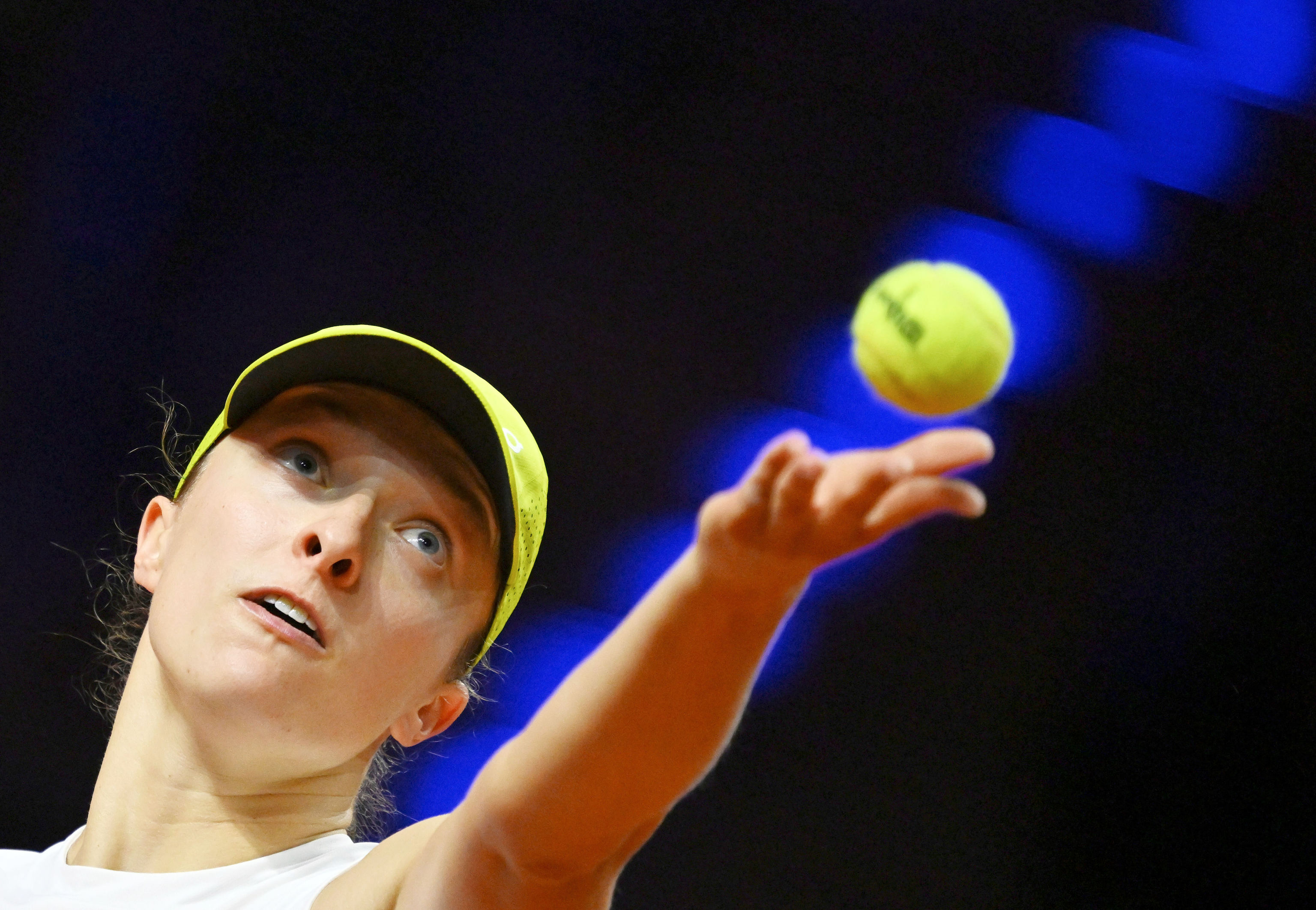Once untouchable, Iga Swiatek (Warsaw, 2001) arrives in Madrid without a title since winning her fourth Roland Garros last year and still in the process of dealing with various setbacks, including a one-month suspension for the consumption of trimetazidine, which, while not affecting her presence on the courts, has devalued her performance. This Wednesday, the defending champion spoke to three Spanish media outlets on the eve of her debut at the Madrid Masters, where she will face young Alexandra Eala on Thursday, who recently defeated her in the quarterfinals of the Miami WTA 1000 in their only previous encounter.
The circuit is moving at a fast pace, with the emergence of very young tennis players who have already been able to beat her. In addition to her first opponent in the capital, there is a 17-year-old girl, Mirra Andreeva, already ranked seventh in the world, with whom she has lost in two out of their three encounters, the most recent being in the semifinals of Indian Wells.
Andreeva, a Roland Garros semifinalist last year, appears to be a serious contender to challenge for the title in the next edition. "The tournament is in a month," she says somewhat uncomfortably. "Let's see what happens now. She is playing very well and progressing quickly. She is at an age where everything happens very fast."
These are not easy times for Swiatek after the doping stain and after being relegated to bronze at the Paris Olympics, in her territory of Roland Garros. "In this past year, I have learned a lot about myself. I believe I am capable of overcoming any kind of crisis and being prepared for the future."
She accepts the high degree of self-demand as one of the foundations that have led her to win five Grand Slam titles and to be ranked number 1 in the world for 125 weeks, a position currently held by Aryna Sabalenka, with whom she shares the most stimulating rivalry of this era. "I am ambitious. I always try to demand the most from myself and put a lot of pressure on myself. It's hard for me to accept when I'm not at a hundred percent or when I make mistakes." Regarding returning to the top of the circuit, she says, "It will be more achievable in the second half of the season."
Question. What has changed for the player who won her first Roland Garros in 2020?
Answer. Back then, no one expected much from me. Now it's completely different: I have my own expectations, which are also very high from the outside. Tennis is gradually becoming more complicated, but my goal remains the same, to be a better player. I believe I have gained confidence, possess more weapons, and know how to use them.
The circuit is moving at great speed, with the emergence of very young tennis players who have already been able to defeat her. In addition to her first opponent in the capital, there is a 17-year-old girl, Mirra Andreeva, already seventh in the world, with whom she has lost in two out of their three encounters, the most recent in the semifinals of Indian Wells.
Q. What have these young players brought to the competition?
A. They are very different, but it is clear that a new generation is coming. I feel a bit old, because I used to be the youngest. [Laughs]. The game is changing. They are very self-assured girls, with a lot of motivation. But this has always happened. And more will come, which is good for the game.
Q. Do you see anything of yourself at their age in them?
A. Every story is different. It's hard to say because I don't know them. Surely they feel like they have nothing to lose. It's logical at certain stages of life. I don't think there is a reason to compare.
Andreeva, a Roland Garros semifinalist last year, appears to be a serious contender to challenge for the title in the upcoming edition. "The tournament is in a month," she says somewhat uncomfortably. "Let's see what happens now. She is playing very well and progressing quickly. She is at an age where everything happens very fast."
"I have learned a lot about myself"
These are not easy times for Swiatek after the doping stain and after being relegated to bronze at the Paris Games, in her territory of Roland Garros. "In this past year, I have learned a lot about myself. I believe I am capable of overcoming any kind of crisis and being prepared for the future."
She accepts the high degree of self-demand as one of the foundations that have led her to win five Grand Slam titles and to be ranked number 1 in the world for 125 weeks, a position now held by Aryna Sabalenka, with whom she experiences the most stimulating rivalry of this era. "I am ambitious. I always try to demand the most from myself and put a lot of pressure on myself. It's hard for me to accept when I'm not at a hundred percent or make mistakes." Regarding returning to the top of the circuit, she says, "It will be more within reach in the second part of the season."
